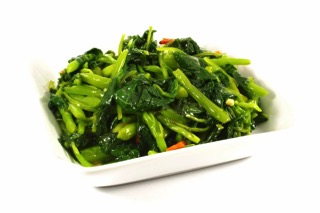
You probably already know the planet is experiencing an extinction crisis; scientists estimate we'll lose up to 50 percent of current species during the next 20 years. But did you know there's also an extinction crisis of gut bacteria happening among civilized humans?
The modern diet, which is high in processed foods, meats and sugars but pitifully low in plant fiber appears to have killed off a rich diversity of gut bacteria on which our health depends. The result? Inflammation and chronic disease.
Low fiber kills bacteria and increases inflammation
To prove the point, one study changed the diets of African Americans, who have a high risk of colon cancer, and native Africans in South Africa. They put the African Americans on a native diet high in plant fiber and the native Africans on a typical American diet high in processed foods and meats.
The researchers quickly saw a decrease in colon inflammation in the Americans eating increased fiber, and an increase in colon inflammation in the South Africans on a standard American diet.
In fact, studies of the few remaining indigenous cultures on the planet show humans once served as host to significantly more gut bacteria than is found in Westerners today. These cultures eat about 10 times more plant fiber than the average American. Those bacteria organize themselves in colonies to digest plant fiber, support immunity, and curb inflammation.
People around the world even have different strains of the same bacterium that is native to their area and genetics. Human migration over the years has wiped out some strains, increasing the risk of certain diseases as a result, such as gastric cancer.
How a diversity of gut bacteria protect your health
Just how do bacteria protect us from chronic disease?
For one thing, when they work at breaking down plant fibers, they create compounds called short-chain fatty acids (SCFAs) that stimulate the anti-inflammatory arm of the immune system.
Although it's possible to supplement with SCFAs, unfortunately they won't be as beneficial as when your own gut bacteria produce them. This is because the bacteria colonize themselves with similar bacteria in an internal ecosystem that protects the lining of the gut.
Starved bacteria eat the gut lining
One startling revelation researchers found is that gut bacteria starved of the plant fiber they need for fuel instead appear to feed on the protective mucus layer that lines the intestines. Studies of mice fed high-fiber diets showed this mucosal layer was as twice as thick as that of mice on a low-fiber diet.
A too-thin layer of protective mucus allows dangerous bacteria, undigested foods, and other pathogens into the bloodstream, where they trigger system-wide inflammation. This is known as leaky gut.
How to beef up your own gut bacteria
It's quite possible that many of us today lack the diversity of gut bacteria our ancestors had, and our health suffers as a result. Researchers believe those who grow up on farms, with animals, and exposed to other sources of more diverse bacteria may fare better in terms of microbial diversity.
Nevertheless, a diet high in plant fiber can increase the diversity and population of your gut bacteria, thus helping you balance digestion and tame inflammation. If you find it difficult to tolerate a high-fiber diet, you may have a severe imbalance in your gut bacteria that needs attention. Ask my office for more information.



Latest from the Blog
The Death of Red Dye #3
January 15, 2025What Is Red Dye No. 3? Red Dye No. 3, or Erythrosine, is a synthetic food color derived from coal tar. It was first approved by the FDA in the 1950s and quickly became one of the most popular artificial colors in food and cosmetics. Red Dye No. 3 was used in everything from candies, […] Read more
Latest from the Blog
Do You Know What Is In Your Protein Powder?
What’s Really in Your Protein Powder? Understanding the Risks Protein powders are a staple in many health-conscious diets, from athletes seeking muscle recovery to those simply aiming to boost their daily protein intake. With a wide variety of options available, choosing the right one can feel overwhelming. However, recent findings have raised concerns about what’s […] Read more